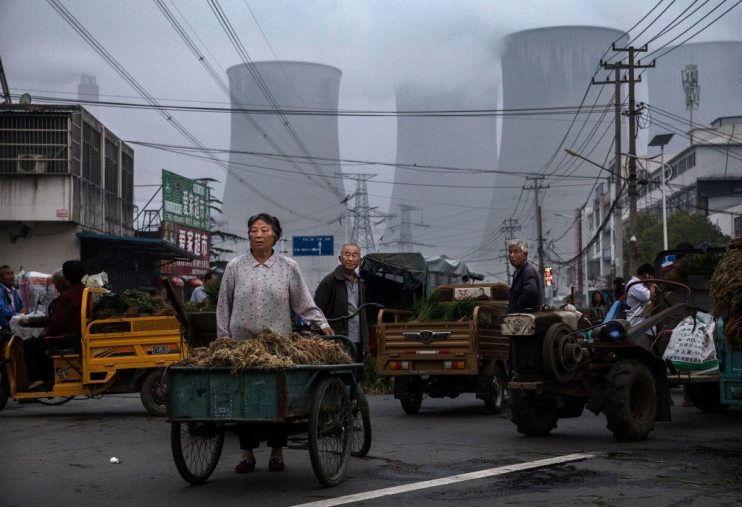China zero-Covid policy sends chill through global markets

Anxiety over the spillover effects on the global economy of China plunging more of its largest cities into lockdown as it ploughs ahead with its zero-Covid policy sent global markets tumbling today.
A surge in infections has increased the likelihood of authorities tipping more cities into the most onerous Covid-19 restrictions, including China’s capital Beijing.
Shanghai, one of China’s top exporting centres, has been in lockdown for weeks, adding to pressure on supply chains and driving inflation higher in western countries.
The possible move to blanket other parts of the country into lockdown drove investors to ditch risky assets to safeguard their portfolios on fears negative shocks could ripple through the global economy.
London’s premier FTSE 100 index closed 1.88 per cent lower, shaving off around £40bn from the UK’s top companies.
The selloff extended into currency markets, with the pound at one point tanking to its lowest level against the dollar since September 2020.
The sea of red bled into the Continent, underlining the heavy risk-off session.
The pan-European Stoxx 600 index dropped 1.76 per cent, while Germany’s Dax 30 fell 1.54 per cent.
Wall Street opened sharply lower, with the S&P 500, Dow Jones and Nasdaq all suffering losses.
Beijing’s approach to taming Covid-19 runs in stark contrast to most other large economies, which have used vaccinations instead of restrictions on daily life to keep the virus at bay.
China, instead, has continued to use lockdowns as a tool to cushion Covid-19, raising concerns over the health of the country’s economy.
Threats of restrictions reaching other large Chinese cities pushed Asian markets lower in overnight trading.
China’s Beijing’s CSI 300 plummeted nearly five per cent, while Hong Kong’s Hang Seng index tumbled 3.73 per cent.
Japan’s Nikkei dropped 1.9 per cent.
Oil prices also dropped due to concerns a cooling in the China economy will hit demand for the commodities.
The world’s top benchmarks, WTI and Brent Crude, fell four per cent at one point today.
Yields on US government debt edged back in a sign that investors increased their holdings of safer assets. Yields move inversely to prices.